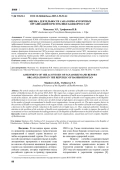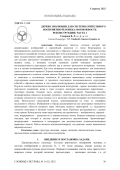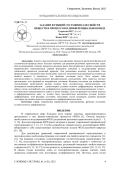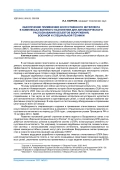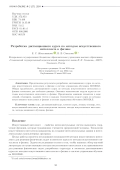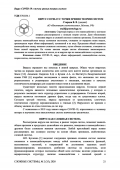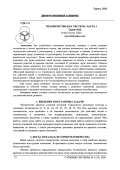Для углублённого понимания процессов, лежащих в основе развития
человечества в целом, предлагается подход, при котором возможности для действий людей и
человечества включены в рассмотрение, а социальные структуры, и влияние человечества на
окружающую среду, исключены из рассмотрения. В известных мне работах указанный подход
практически отсутствует. Целью данного исследования является разработка критериев поиска
компонент или групп компонент такой системы, выявление их списка, а также рассмотрения
динамики развития во времени системы, состоящей из указанных групп компонент. Описаны
критерии поиска компонент или групп компонент, которые могут составлять такую систему.
Приведен список групп компонент, в который, в частности, входят «Искусственные материалы»,
«Массовый транспорт» и т.п. Совокупность групп компонент определяет диапазон возможностей
для действий людей и человечества, как целого. Проведен анализ изменения во времени
предложенного набора групп компонент. Установлено, что спектр названных возможностей с
течением времени расширяется и что это расширение реализуется с ускорением.
При поиске групп компонент системы по предложенным критериям использовалась
информация из областей знания, которые связаны с развитием технологий, средствами
коммуникации, социальной активностью, глобализацией, когнитивными способностями.
